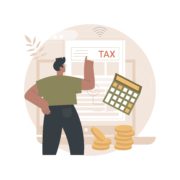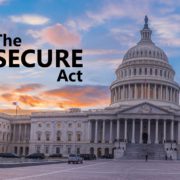New IRS Guidance Gives Information on Tax Requirements for Special Payments
Just when we all thought that tax season couldn’t possibly get any more confusing — it does. The Internal Revenue Service recently released a statement saying that most taxpayers who received state-issued, one-time payments last year to decrease the impact of higher inflation would not be required to report them as income on federal income tax returns.
Great news, right? Except for the “most taxpayers” part — which means not everyone is exempt from reporting these payments. Some taxpayers in four states may still need to claim these special payments on their tax returns this year.
IRS Caused Confusion for Taxpayers by Telling Them to Hold Off On Filing Tax Returns
The IRS even went so far as to recommend that taxpayers hold off on filing their tax returns until it could release further guidance on navigating these payments, which ultimately impacted millions of U.S. taxpayers. Now, several weeks into tax season, a statement released on the IRS website noted that, “The IRS has determined that in the interest of sound tax administration and other factors, taxpayers in many states will not need to report these payments on their 2022 tax returns.”
What to Know About Special Payments When Filing Your Tax Return
The new guidance outlines a wide range of information to help taxpayers. One of the first things to note when filing your tax return is that the IRS has stipulated that payments related to general welfare and disaster relief are not federally taxable to:
- Alaska
- California
- Colorado
- Connecticut
- Delaware
- Florida
- Hawaii
- Idaho
- Illinois
- Indiana
- Maine
- New Jersey
- New Mexico
- New York
- Oregon
- Pennsylvania
- Rhode Island
Additionally, IRS guidance outlines that state payments will not be included for federal tax purposes if the payment is a refund of state taxes paid and either the recipient claimed the standard deduction or itemized their deductions but did not receive a tax benefit for the following states:
- Georgia
- Massachusetts
- South Carolina
- Virginia
If you have questions about tax guidance on special payments you received, we can help. Contact Leone, McDonnell and Roberts today to speak with a tax professional.










